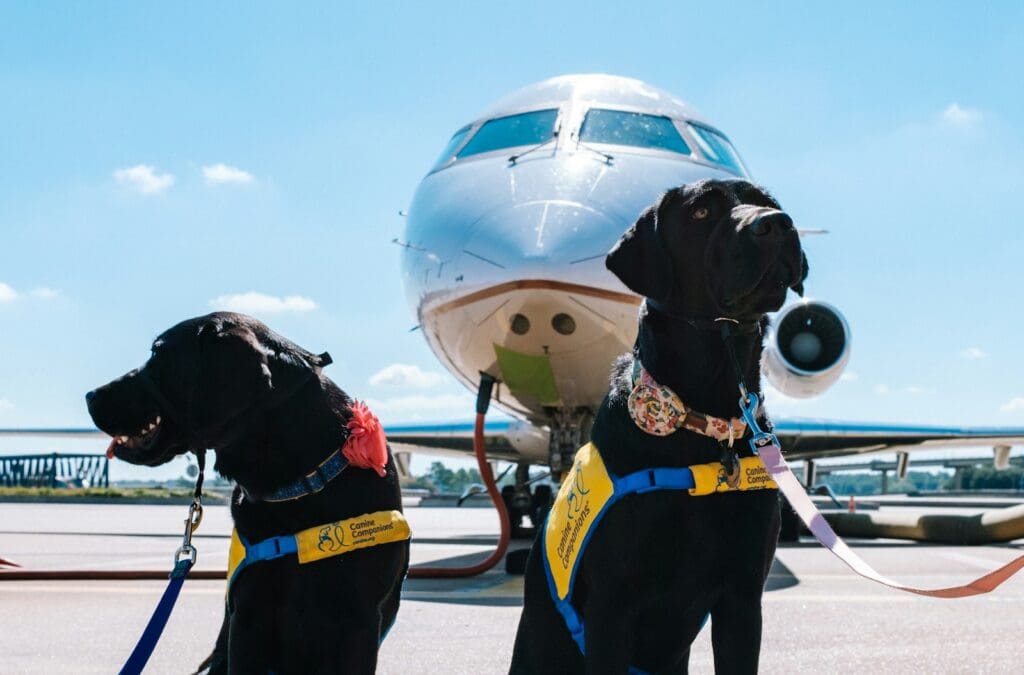Some people love having their pets around and feel at ease in their presence. Others have mental health conditions that require them to have their animal nearby. These animals can become legally protected as emotional support animals or ESAs.
Official Approval

For your pet to be considered an ESA, they need to be officially approved for the role by a medical provider or mental health specialist. The provider needs to be licensed in your state and they need to be currently practicing. Some sites claim to be “ESA directories,” but these offer no legitimate legal protections.
Consultation Required

You need to complete an official consultation with a mental health provider or a medical professional in order to apply for your pet to be considered an ESA. This means you can’t just register them online or claim they’re your ESA without first speaking to a doctor.
Legal Protections

Once you go through the official process of procuring an ESA letter, you’re afforded certain legal protections. For one thing, you’re exempt from many pet fees and can circumvent things like breed restrictions in apartment complexes. You’re also able to bring your pet with you to some areas that would typically be off-limits for animals.
Not a Service Animal

An ESA is not explicitly a service animal. In some cases, a person’s service animal (like a seeing-eye dog) might also be an ESA. However, the two are not mutually inclusive. Service animals have essentially no restrictions on where they can go, like public buildings.
Not Professionally Trained

Also, unlike a service animal, an ESA doesn’t need to be professionally trained. Any animal that provides you with emotional support can be legally recognized as an ESA. The only restrictions are that the animal needs to be housebroken, well-behaved, and friendly toward strangers. Aggressive or disruptive animals won’t be considered for ESA approval.
They Provide Real Benefits

Despite some claims that ESAs are just a legal excuse to bring your pets with you wherever you go, research has proven that these companions have real mental health benefits. People with serious anxiety, depression, and similar illnesses really do need their ESAs to help them.
Flying in the Cabin

One major benefit to having a legally recognized ESA is that they can fly with you in a plane’s cabin. This is tremendously helpful for people with flight anxiety. The comforting presence of an ESA can be the difference between a panic attack and an uneventful flight.
No Breed Restrictions

There are no breed (or even species) restrictions on what qualifies as an ESA. Any domesticated, well-behaved animal can be registered as an ESA. This means that cats, mice, rabbits, and even birds can be legally protected support animals—which makes it easier to apply for “no-pet” housing while keeping your cherished ESA with you.
No Special Identification

Unlike service animals, ESAs aren’t required to wear special identification like a vest or a collar tag. This is partly because any domesticated animal can be an ESA, and it would be tricky to standardize identification. This also means that some people might not realize your ESA is a legally protected companion, so be sure to prepare some documents to explain the situation if the need arises.
Read More: 10 Exotic Pets You Didn’t Know Were Legal
Always With You

Once your furry (or feathered) pal is recognized as an ESA by the law, you can rest assured that they’ll always be with you. No matter where you move or what kind of flights you need to go on, your support animal will be there to comfort you.
Read More: How Pets Bring Us Closer to Nature






